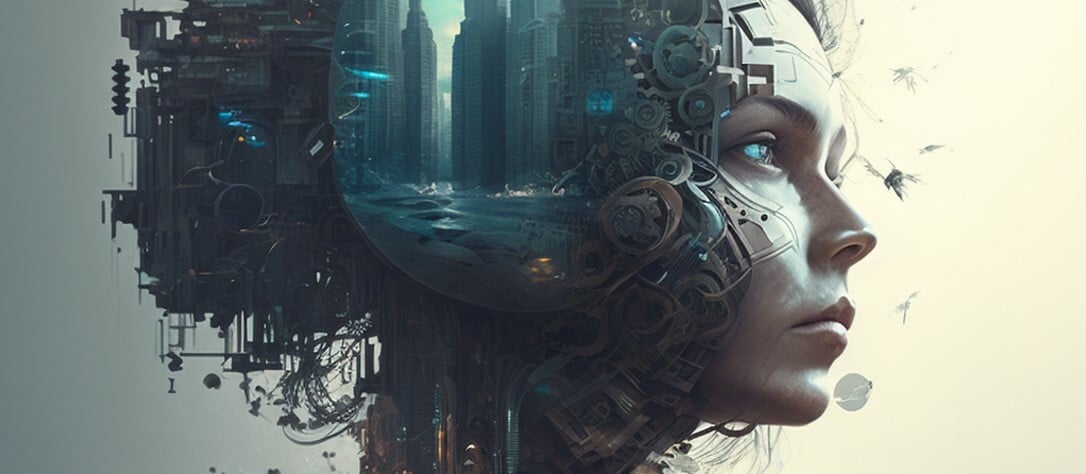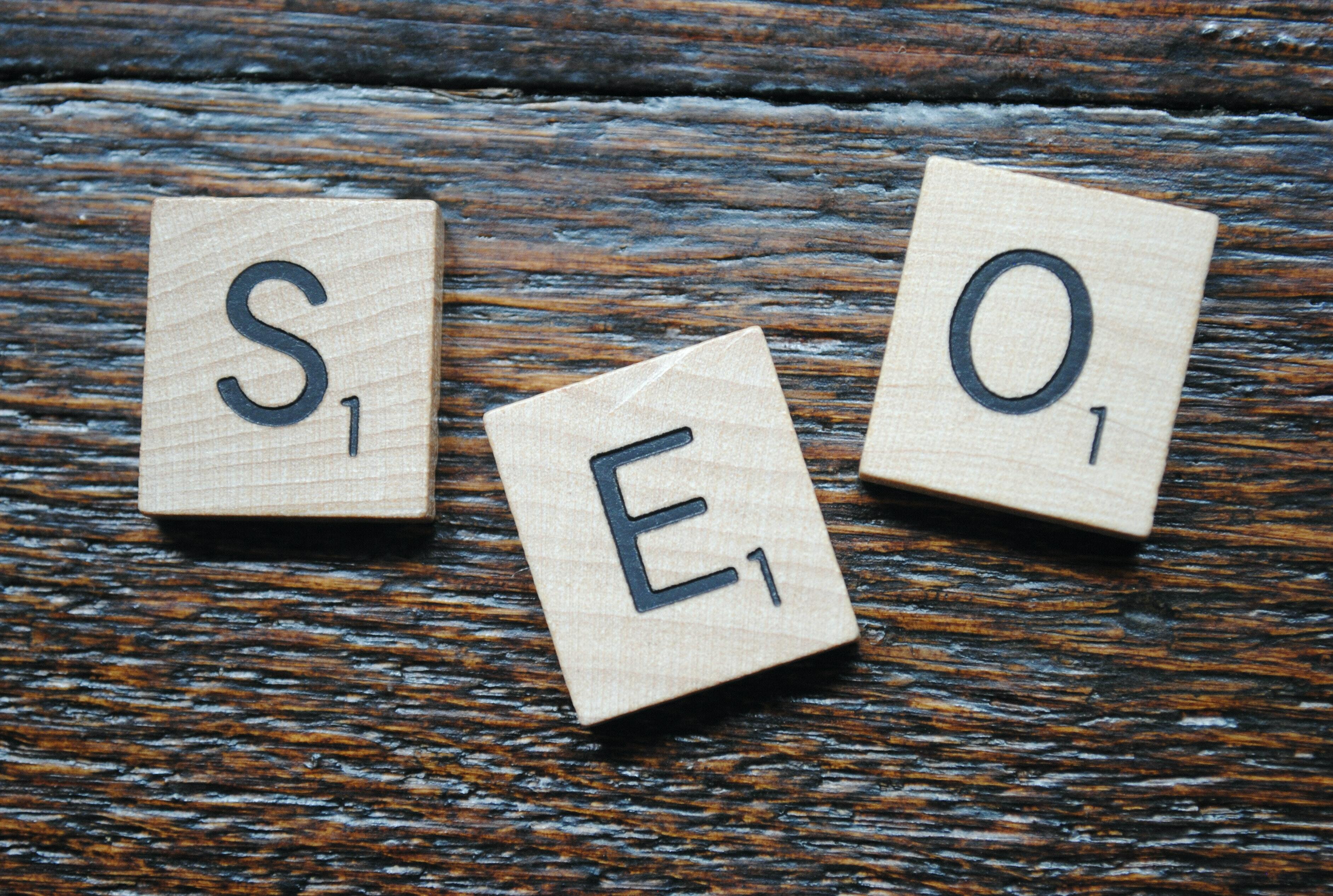Our Takes from Google I/O
SEO strategist Sophie summarises some of her key takeaways from Google I/O this year, the annual developer conference held by Google in California.
Google I/O 2023 has happened and as expected, there were a lot of announcements.
What is Google I/O?
In case you don’t know, Google I/O is an annual developer conference held by Google in California. It is a live event that is also streamed to everyone across the world.
In essence, it is an opportunity for Google to showcase its latest technologies and products. There was a lot to take in, and as expected, AI took centre stage.
With the unprecedented incline in AI awareness and use this year, it was about time Google flexed their muscles and showed the world what they have to offer to the party. With so many exciting updates on the way from them it's hard to pick out our favourites, but we’ve summarised some of the goodies that grabbed our attention, and that we think will prove to be game changes to the industry.
Generative AI in Search
Google's mission is to organise the world's information and make it universally accessible and useful. The way people use search is changing and in turn, Google search is set to become more ‘visual, snackable, personal, and human’.
Queue generative AI. It will look something like this:
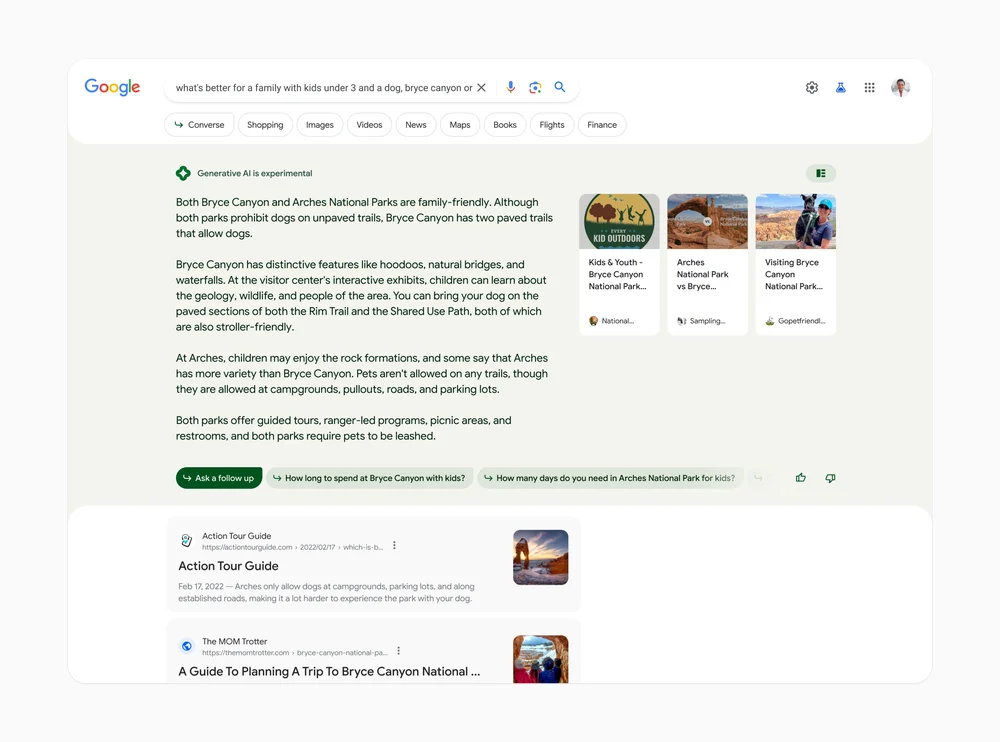
Google's aim is to get users the answers they want quickly, and this achieves that within search. It prevents users from having to scroll too far to find what they’re looking for, whilst being presented in a helpful and digestible way.
But it changes the way search looks in a fairly significant way, and as such is raising questions with marketers. How will this affect SEO? Will PPC still exist? Which websites will win or lose? Google summarises what it thinks are some of the key benefits:
- Easily get up to speed on a new or complicated topic
- Uncover quick tips for your specific questions
- Discover a range of products and things to consider while shopping
It’s currently available for testing to users who sign up in Search Labs, and is likely to look a bit different when rolled out to the rest of the world, as developments are ongoing.
Search Labs - User Testing
Following on from the mention of Search Labs, Google is giving users a new way to preview and test some of the experiences across Workspace and several of their other products, in the form of Labs. This means users can sign up and test the latest innovations before they are released to the rest of the world.
Google has already had a history of using Labs as a way to power early user access and gather feedback, but it’s had some updates and is a lot more accessible now. Alongside Workspace features, one of the first experiences users were able to test in Labs involved their beating heart, Google Search.
They said:
“Of course, applying generative AI to Search is still in its early days. People around the world rely on Search in important moments, and we know how critical it is to get this right and continue to earn their trust. That’s always our North Star.
So we’re approaching innovation responsibly, striving for the highest bar for information quality as we always have from the very beginning. This is why we are bringing our new Search Generative Experience to you first in Labs.”
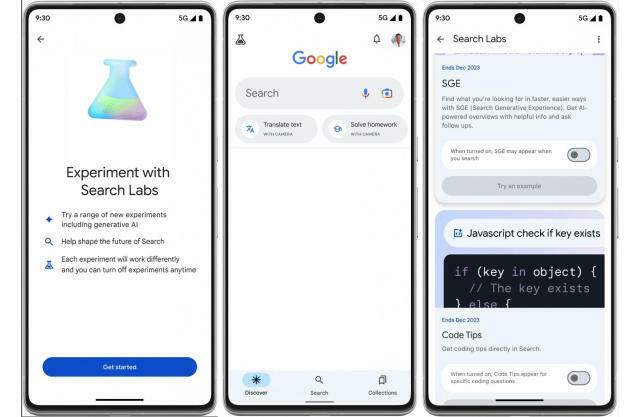
Workspace
Google showcased its plans to transform Google Workspace with AI into a more integrated and collaborative platform, all of which looked rather appetising. Again, many of the features can be tested in Search Labs.
The emphasis was on seamless collaboration and enhanced productivity. In addition to “Help me write” in Docs and Gmail, there was Duet AI. This is Google's newAI tools for Docs, Sheets, Slides, Meet, and Gmail which includes features such as composing emails and generating images from text descriptions in Slides and Meet. It has many other exciting features, such as creating custom plans in Sheets.
PaLM 2 - Large Language Model
Getting a little more technical, PaLM 2 (following on from PaLM last year) is a next generation large language model that builds on Google's innovative research in machine learning and AI.
The models found in PaLM 2 deliver advanced capabilities across a wide range of sizes. Google feelingly named them Gecko, Otter, Bison, and Unicorn (we love). These models are more capable in logic and reasoning, with broad training embedded on scientific and mathematical topics.
These topics include Med-PaLM 2, which is trained by Google’s health research teams who have vast medical knowledge. It can answer questions and summarise insights from a variety of in-depth medical texts. It also handles multilingual text (more than 100 languages) so it understands and generates results that are a little more nuanced. Basically, an AI clinician with a Bard model for healthcare.
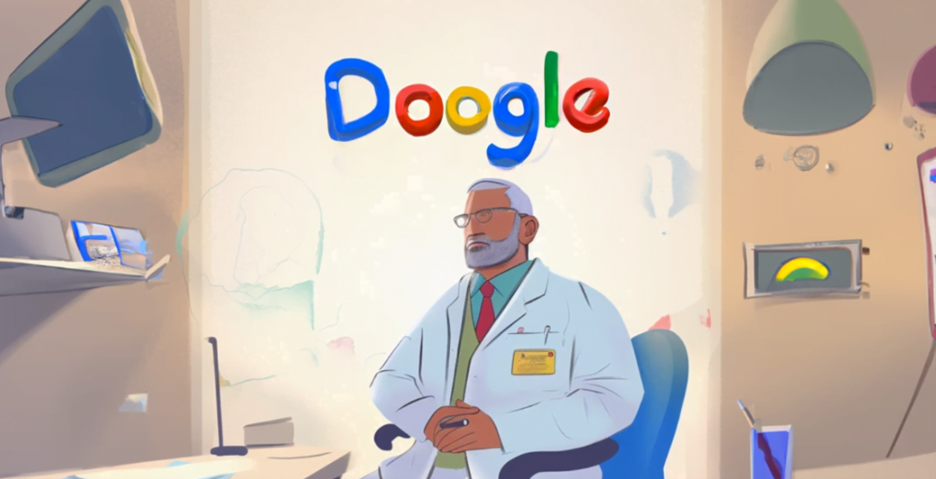
PaLM 2 is helpful for developers across the world thanks to powerful coding capabilities. For example, if a developer was working with a colleague halfway across the world on some code, they can ask the tool to fix a bug and assist their colleague by adding comments in the colleagues language to the code. It first recognises the nature of the code and then suggests a fix, explaining the reasoning behind it with comments for the colleague added in. Pretty cool.
Bard - Conversational AI Chatbot
Onto Bard, perhaps one of the most well known and talked about AI tools of recent times from Google. Google I/O 2023 shared that it is now running on PaLM 2, so capabilities have steeply inclined.
Presenters shared the most recent additions to Google Bard which included opening the tool up to over 180 countries across the world, providing more visual responses and prompts, as well as coding upgrades and export features for the benefit of developers.
They also shared that they will be integrating Bard with the suite of Google tools including Drive, Docs, Gmail and Maps.
Perhaps most impressive, it will be tapping into services available across the web, with extensions from outside partners. Included in these will be Adobe Firefly and Adobe Express, allowing users to ask Bard to generate images with specific requirements, and within seconds receive a high quality image as requested. They assured us this would adhere to Adobe’s high standards for quality and ethical responsibility.

What Does All This Mean For Us, and You?
Leith as a full service agency has a huge digital presence which is ever growing, and AI is high on our priority list. Understanding the latest developments from industry giants such as Google allows us to grasp and integrate the latest innovations and technologies into our service offerings, including across creative, design, web development, SEO and much more.
We’re excited for the future of AI, Google I/O 2023 added fuel to our fires. We hope you feel the same.


